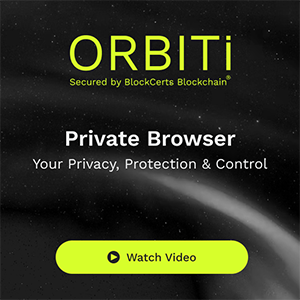BlockCerts Use Case Desk: Real Estate Transformed by Blockchain

What’s Missing from Real Estate? - Technology
The commercial real estate market has grown tremendously on a global scale. According to an MSCI report, the professionally managed global real estate investment market has increased from $7.4 trillion in 2016 to $8.5 trillion in 2017. The asset base is there and the global growth is there, yet we seem to be missing the most relevant piece of our day, technology. Despite efforts to advance within the digital age and place information flow within the scope of technology, the real estate market continues to rest in the initial phases of digitization. But if we only open our eyes to new innovations, we will find prime real estate in the blockchain.
The Future of Real Estate
According to the Real Estate Use Cases for Blockchain Technology report, “The future of real estate is one where purchases and investments become much more liquid, much more available, and far more easily documented and managed.” The key to that future? Blockchain technologies. That includes everything from decentralized transaction ledgers and asset tokenization, to owner entity and land title registries.
Essentially, the blockchain will open up markets for new investors and a greater number of parties to “manage ownership, liquidity, and risk much more effectively.” In order to articulate the potential of the technology, this report completed by the Enterprise Ethereum Alliance and the Real Estate Special Interest Group outlines four primary use cases in real estate.
Use Case One: Token Securitization
Among them is Token Securitization. While you may have heard of tokens in the form of cryptocurrency and as a store of value, there is a lot more to it. Tokenization may be used to unlock investment opportunities while simultaneously lowering the cost and fees involved in real-estate transactions. According to the report, “Because the tokens exist on the blockchain, the investor is able to make this transfer without the delays, high costs, middleman and other sources of friction that typically belabor real-estate transactions. And because the tokens are liquid assets, the liquidity discount currently associated with real-estate transactions should be mitigated.”
Tokenization could also help homeowners to access more capital from a variety of sources and find verified counterparties willing to “match up and buy tokens at these proposed rates.” Additionally, the tokenization of real estate allows for the use of smart contracts, which enable greater transparency to all parties involved.
Use Case Two: Land Registries and Cadastrals
The second use case that this report considers includes land registries and cadastrals. Up to today, most information has been kept offline, making it extremely difficult to access land registries across the world. Fortunately, blockchain registries have the capacity to streamline the cumbersome process of recording and transferring titles. And as a result, ownership of properties will become more available and “accrue the benefits of being in a more verifiable and digital form.”
Use Case Three: Token-Enabled Marketplaces
Going back to the value of tokenization, a blockchain-powered token can do much more on a wider scale. In fact, it can create a marketplace in which commercial real estate exchanges become more liquid and transparent overall. “Such exchanges would allow for improved trading capabilities, perfection of ownership, and management of the properties and portfolios,” the report concludes.
Use Case Four: Standardized Property Data
And last but not least, Standardized Property Data is a significant use case that could drive blockchain adoption in this market. A common problem in the global real estate ecosystem is a lack of interoperability between real estate networks and other systems. Listing exposure is the very first step in carrying out a transaction, yet agents and firms continue to struggle to gain exposure from the kinds of systems currently available. So, how does the blockchain fit into this?
As articulated in the report, the blockchain provides a much stronger platform for carrying out these processes. “Blockchain networks and technologies provide a foundation to process, exchange, and control the downstream flow of data in a way that allows independent, unaligned, and even competing stakeholders to share with one another, without ever giving up ownership or control of their data to a central operator and its interests.”
Moving Forward On the Blockchain
These top four use cases speak to only a small segment of the wider potential of the blockchain. The technology is much more than a technology, it’s a new movement and one that will shape the real estate market through funding, development, ownership, and more. Real estate is a potent market for blockchain. It is for this reason why BlockCerts integrated the blockchain with our own real estate market space, Realestock.
Integrated on the blockchain, Realestock is creating immutable trust with each transaction.TWEET THISWorking with companies in the past like Sotheby’s, Realestock has enabled billions of dollars worth of transactions, providing an equity crowdfunding service platform for real estate properties and development projects. Integrated on the blockchain, Realestock is creating immutable trust with each transaction. After all, it’s the value of trust that really turns a house into a home.
For more information Contact Us https://blockcerts.com/contact-us/






